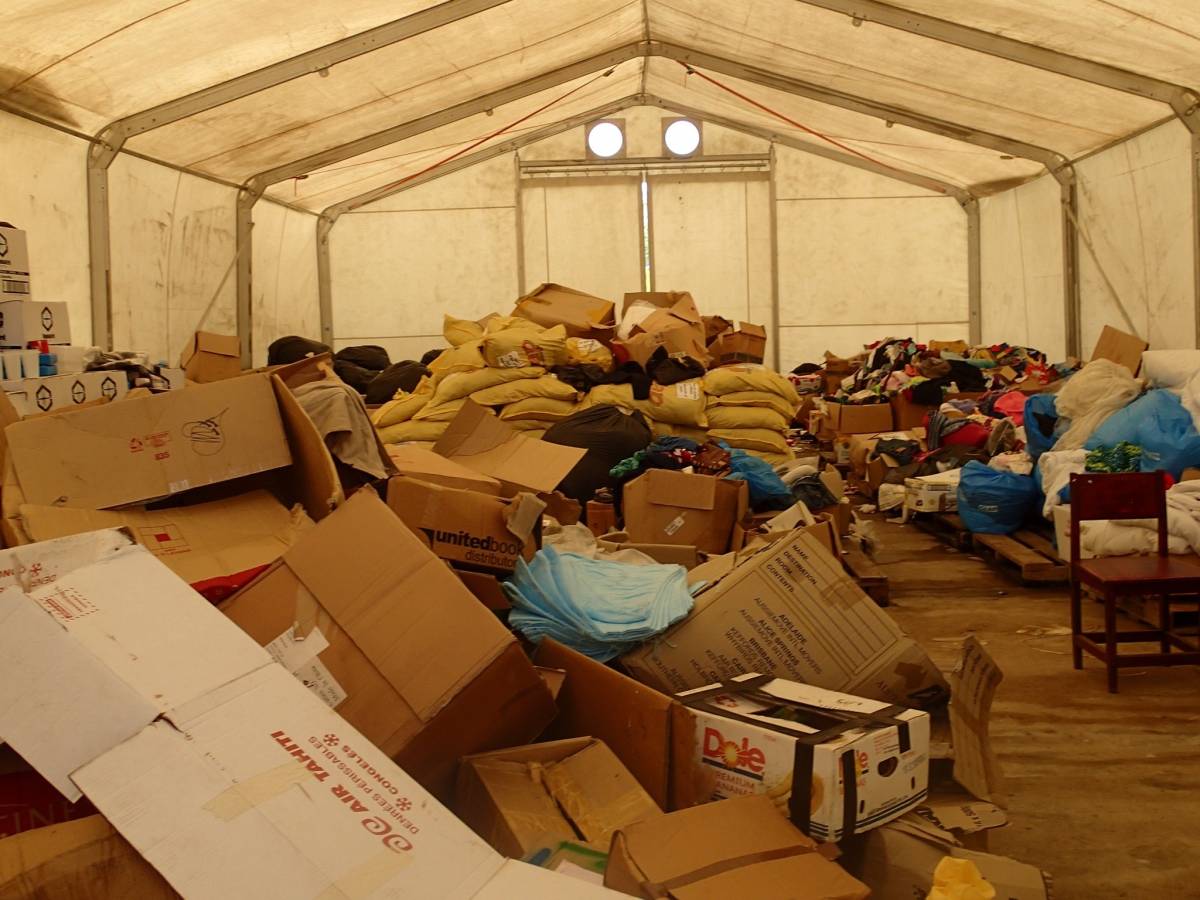Cash – the best support you can give
The best thing you can do when a disaster occurs is to donate money to an emergency appeal by an experienced and trustworthy organisation working on the ground. These organisations have clear systems and processes for assessing what's needed. Where possible they will source supplies from close to the affected area, which is the most efficient and cost-effective way of getting help to those who need it, and also supports the local economy.
Think twice before donating goods
When disaster strikes overseas many New Zealanders are keen to help, but the wrong donation at the wrong time can hamper, not help, relief efforts.
Only 5-10% of public donations sent during a disaster, such as food or clothing, actually meet urgent needs. These unrequested goods can obstruct the humanitarian supply chain and compete with the delivery of life-saving humanitarian supplies. They can be time consuming and difficult for the affected country to store, transport and distribute. Sometimes the cost of transporting goods can be more expensive than the value of the goods. For example, relief organisations can purchase over 6,000 litres of water locally for the same price that it costs to ship a 6-pack of 500mL bottles of water from Auckland to Fiji.

It's best to only donate goods that have been asked for by an aid agency working on the ground.
Before organising a collection of donated goods:
- Find out whether the goods are needed on the ground and if they are appropriate for the country.
- Make sure you have a good understanding of all costs involved, including freight to the country, transport within the country, and any wharf, handling and customs charges.
- Make sure you have a clear plan for the goods once they arrive in the affected country, including people who will take responsibility for the logistics and costs of collecting, storing, sorting and distributing the goods.
How the private sector can help
Following a disaster, thousands of generous New Zealanders want to assist. New Zealand businesses can assist people to help, rather than hinder, the response. You can:
- Hold a fundraiser with your employees and donate the proceeds to a reputable humanitarian organisation
- Partner with a humanitarian organisation and match their public fundraising efforts
- Sponsor a community fundraising event and help your local community raise funds to donate to a humanitarian organisation
- Help us spread the word that cash is best
If you think your business can support the New Zealand Government response to a disaster, contact us.
Plan ahead if you want to be a volunteer
Like other aid agencies, MFAT doesn't send volunteers from the public as part of a humanitarian response. Following a disaster, there can be significant health hazards and limited food, water, communications, transport and accommodation in affected areas. There may also be language and cultural barriers that make volunteering difficult or inappropriate. It's important that people who help in a humanitarian crisis are working for an experienced humanitarian agency and that they are specifically trained in how to work in disaster situations. This is both for their own safety and so as not to put additional strain on limited resources.
The Ministry of Health works with New Zealand health workers who wish to volunteer for deployments during a disaster response.
Find information on the application and training process for health workers(external link)
Volunteer Service Abroad (VSA) sends New Zealand volunteers to share their skills and assist with longer term development in non-emergency situations.
Read about current VSA volunteering vacancies(external link)
5 ways you can repurpose donated good to help raise cash to donate to disaster relief
Already started collecting? Here are 5 easy ways you can repurpose donations and help raise funds for disaster relief to ensure your help reaches those in need:
Organise a market day or a community event
Leave your clutter behind for a good cause! We all have clothes and objects that are in need of a new home. Cleanse your wardrobe and living room and raise money with your school or church to donate to disaster relief.
Use donated canned food to host a cook-off
How creative can you be with tinned spaghetti? Host a family-fun day of cooking and donate proceeds to an organisation working with disaster affected communities on the ground
Sell donated goods at a local sports game
If you’ve collected bottled water, why not see if you can sell the water at a local sports game and donate the proceeds.
See if local businesses are interested
Ask around your local businesses to see if anyone is willing to match your community fundraising dollar for dollar, to get a bigger bang for your buck.
Organise a casual work day and donate the proceeds
Ditch your corporate clothes or uniform for a good cause. Encourage your colleagues or school to dress casually and donate the proceeds.

